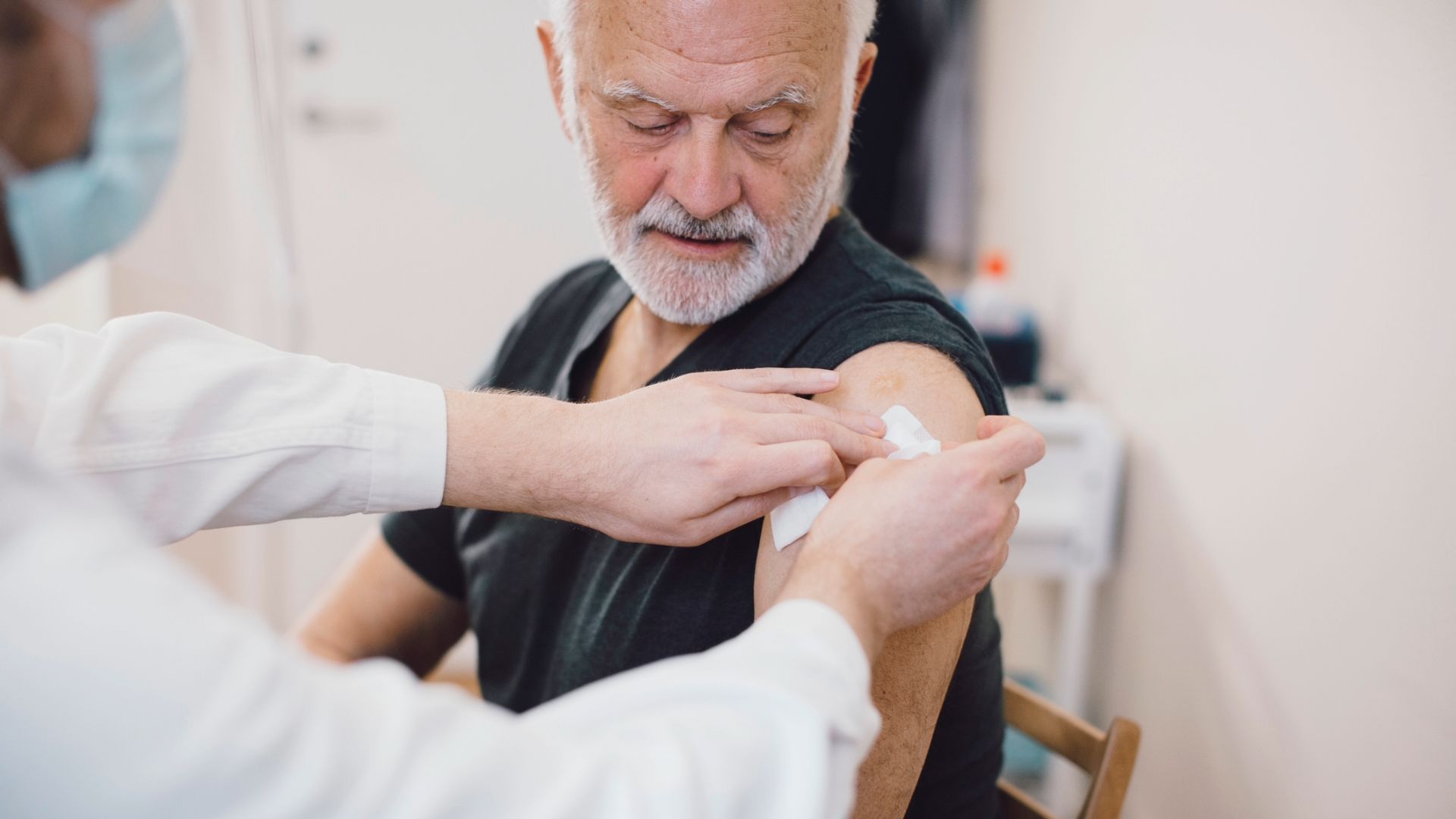Updated on December 18, 2024
The Centers for Disease Control and Prevention (CDC) recommends that everyone who is eligible receive a COVID-19 vaccine. That applies to most people ages 6 months and older. They should also remain up-to-date with each booster and updated vaccine, even if they have had COVID before.
More than 5.6 billion people around the world and more than 270 million people in the United States have received at least one dose of a COVID vaccine. For the overwhelming majority, the process goes smoothly, whether it’s a first dose, booster, or updated vaccine.
Getting ready for your vaccine appointment
If you have an upcoming appointment to receive a COVID vaccine, the following tips can help everything go as smoothly as possible.
Sleep, eat, and hydrate
It’s a good idea to be well-rested, hydrated, and nourished before going to your appointment. This can help you feel your best after receiving the shot. You don’t need to do anything special beyond eating and drinking on your usual schedule. If you’re getting your vaccine during what is normally a mealtime for you, try eating beforehand.
Wear short sleeves or layers you can remove
This will give the person administering the vaccine easy access to the arm that is getting the injection. Avoid wearing bulky sweaters or other sleeves that are difficult to roll up. If it’s cold outside, the easiest solution may be to wear layers you can take off, with a t-shirt as your base layer.
Try to resist taking over-the-counter (OTC) pain relievers before the shot
These include acetaminophen and ibuprofen. They could affect how your immune system responds to the vaccine. It’s fine to use them if you develop side effects, but experts discourage taking them without symptoms.
Be honest if needles make you squeamish
Many people are squeamish about needles—don’t be embarrassed if you are one of them! But it’s a good idea to tell the person administering your vaccine. They may have tips or strategies to help, and they will appreciate knowing ahead of time. You can also try looking away, carrying on a conversation, or distracting yourself.
Plan to take it easy the next day
Although some people don’t experience any side effects at all after getting the COVID-19 vaccine, others can feel the effects for a few hours or a few days after receiving a shot. The most common reported side effect is pain at the site of injection. Other typical side effects include fatigue, headache, achiness, and sometimes chills, fever, or nausea.
Since you can’t know ahead of time how exactly your body will react to the dose, if possible, it’s best to clear your schedule for the following day after a vaccine. At least, plan on not doing anything strenuous.
You can take OTC pain relievers such as ibuprofen or acetaminophen to relieve side effects. You might also put a cool, wet cloth on your arm if it’s sore, or try lightly exercising your arm. If you develop a fever, make sure you’re getting enough fluids, and wear removable layers.
Understand which vaccine you’re getting
It can help to learn more about the specific vaccine you plan to get for yourself or your child. Many clinics carry COVID vaccines from different manufacturers. Different vaccines use different mechanisms to build immunity against COVID. Different vaccines are also administered on different schedules and may have varying risks of side effects.
At your vaccination appointment, you should be given a factsheet about the COVID vaccine you receive. Reading it can help you understand more about that particular vaccine.
If you have previously had an allergic reaction to a COVID vaccine, or if you know you’re allergic to a vaccine ingredient, check with your healthcare provider about the best type of COVID vaccine for you.
Cost of COVID vaccines
COVID vaccines are covered by most private health insurance, Medicaid, and Medicare plans. Uninsured or underinsured adults were able to freely access vaccines through the CDC’s Bridge Access Program, but the program expired in August 2024.
Most states do have free vaccine access programs, however, such as the Vaccines for Adults (VFA) program. Check with your state or local health department using the CDC’s health department directories to see if you may be covered.
Uninsured or underinsured children may be eligible for free vaccines through the CDC’s Vaccines for Children (VFC) program. To find a free vaccine program where you live, contact your state, county, or city health department.






